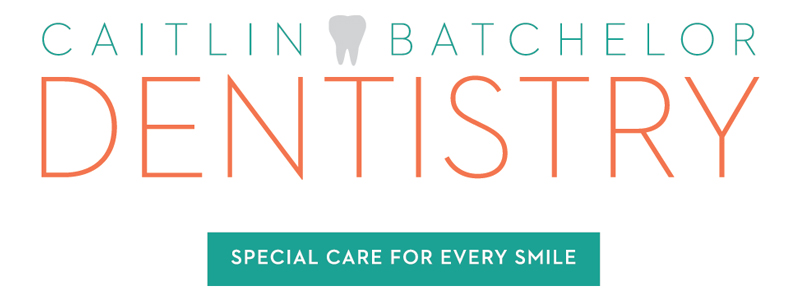How Does Dental Insurance Work?
According to a recent study, about 60% of people in Virginia have some form of dental insurance. However, dental insurance is often confusing and complex. In this article, we’ll try to clear up some of the common misconceptions about dental insurance. We’ll also help you understand how to get the dental care you need — whether you have dental insurance or not.
Key dental insurance terms to know
Annual Maximum - Many dental insurance plans have an annual maximum or the amount the insurer will contribute to your care each policy-year. A common misconception is that the annual maximum is the maximum amount you (the patient) will pay out of pocket in a given year. This is not the case.
Benefits - Benefits are simply the coverage provided by your dental insurance plan. Your benefits may include coverage for preventive care like cleanings and exams, as well as a percentage of restorative treatments. Understanding the explanation of benefits is key when evaluating different dental insurance options. Some plans only cover preventive care, or do not cover “major” procedures, and this is important for you to know when you purchase the plan.
Premium - Your insurance premium is the monthly, quarterly, or yearly fee you (or your employer) pay for coverage. Generally speaking, the higher the premium the greater the benefits and the more flexibility you’ll have in selecting a dentist.
Network - One of the most common frustrations with dental insurance (and health insurance in general) is the concept of in-network and out-of-network providers. Many providers make arrangements with specific insurers to be “in-network”. When you see an “in-network” provider, your insurer will be responsible for a higher percentage of the cost than at an out-of-network provider. This doesn’t mean you’ll always pay more at an out-of-network provider.
Dental insurance is not medical insurance
In virtually all cases, dental insurance is much more limited in scope than medical insurance. While your medical insurance will (potentially) cover anything from a trip to the emergency room, to everyday lab tests or an extended hospital stay, most dental insurances work a bit differently.
Dental insurance often breaks care down into one of 3 categories:
Preventive Care - Exams, x-rays, check-ups, cleanings, etc.
Basic Procedures - Fillings, root canals, extractions, etc.
Major Procedures - Dentures, implants, crowns, etc.
A dental insurance plan may be a 100/80/50 plan where the insurer covers 100% of preventive care, 80% of basic procedures, and 50% of more advanced treatments. You can see why it’s so important to take care of your teeth — not only will your health suffer, but your pocketbook will, too.
Here’s where things get confusing.
With your medical insurance plan, you likely have a maximum yearly out-of-pocket that limits the amount of money you’ll pay for care (usually around $6,000) no matter how much care you need.
Unfortunately, dental insurance doesn’t work this way. Instead, your insurer limits the amount they contribute to your care. Even worse, this cap is often shockingly low - usually between $1,000 and $2,000 - and the cap has not increased since dental insurance started to be offered in the 1960’s. If you need a lot of care, you’ll likely be paying for a majority of it yourself, even if you have dental insurance.
How to use your dental insurance
If you do have dental insurance, think of it as a tool to help you save on the care you need. Yes, in some cases you’ll pay nothing out-of-pocket, but often you’ll be using your dental insurance to receive a discount.
Your dental insurance should help you pay for the care you need. It shouldn’t dictate the care you receive.
No dental health problem will go away on its own. Left untreated, cavities will get bigger and could require a root canal, or may need to be removed. Teeth that need (and don’t receive) a root canal will become infected and may need to be extracted and replaced with an implant if not taken care of. Your health will suffer and the cost of additional treatment will only increase.
The sooner you complete the treatment recommended by your dentist, the better!
What if you don’t have dental insurance
Even though nearly 60% of Virginians have dental insurance that leaves over 40% of people who don’t have dental insurance.
If you don’t have dental insurance, there are still ways to help you get the care you need.
You may be interested in CareCredit which is like a credit card for healthcare spending. Many of our patients qualify for 0% financing for up to 24 months. CareCredit makes it easy to get the care you need with affordable monthly payments.
In addition to CareCredit, here at Batchelor Dentistry, we offer an in-office dental health savings plan. Offered through Kleer, our dental health savings plan includes:
Exams & cleanings
1 emergency exam per year
Periodontal maintenance
Routine x-rays
Instead of dealing with deductibles, pre-approvals, yearly maximums, and all the other headaches that go into dental insurance, you just pay a single monthly fee to be part of the plan. There are no deductibles, no caps on savings, and no hassle. You even get a discount if multiple members of your family enroll! We offer 3 different plans: child, adult, and perio (for those with a history of gum disease). Learn more about our dental health savings plan and start your application today.
Dental insurance is NOT always less expensive than paying out-of-pocket
If you’re financing your dental care yourself, you won’t always come out ahead by paying for dental insurance yourself. If you’re generally healthy, keep up with your home care and dental checkups, and don’t have a history of decay and disease, you may not get a lot out of dental insurance.
You must make the best decision for yourself and decide whether the cost of a dental insurance plan is worth the benefits it provides.
An ounce of prevention is worth a pound of cure
Whether you have insurance or not, you must be committed to taking care of your teeth and gums at home. That includes: brushing twice a day, flossing daily, and eating a diet that’s low in sugary and acidic foods. Good home-care habits are essential to lifelong dental health.
By taking care of your teeth and gums at home and scheduling regular dental checkups you can limit your risk of decay and disease.
Schedule your appointment today
Are you interested in learning more about our approach to your dental care at Batchelor Dentistry? Schedule your appointment today and let’s get to know each other!

Dr. Caitlin Batchelor
Dr. Caitlin Batchelor earned her Doctor of Dental Surgery degree from Virginia Commonwealth University’s Medical College of Virginia. She later completed a 2-year postgraduate General Practice Residency at Wake Forest University Medical Center. Since joining this practice in 2013, Dr. Batchelor has been committed to providing individualized dental care to the specific needs and desires of her patients, taking the whole person and their unique qualities into consideration.




